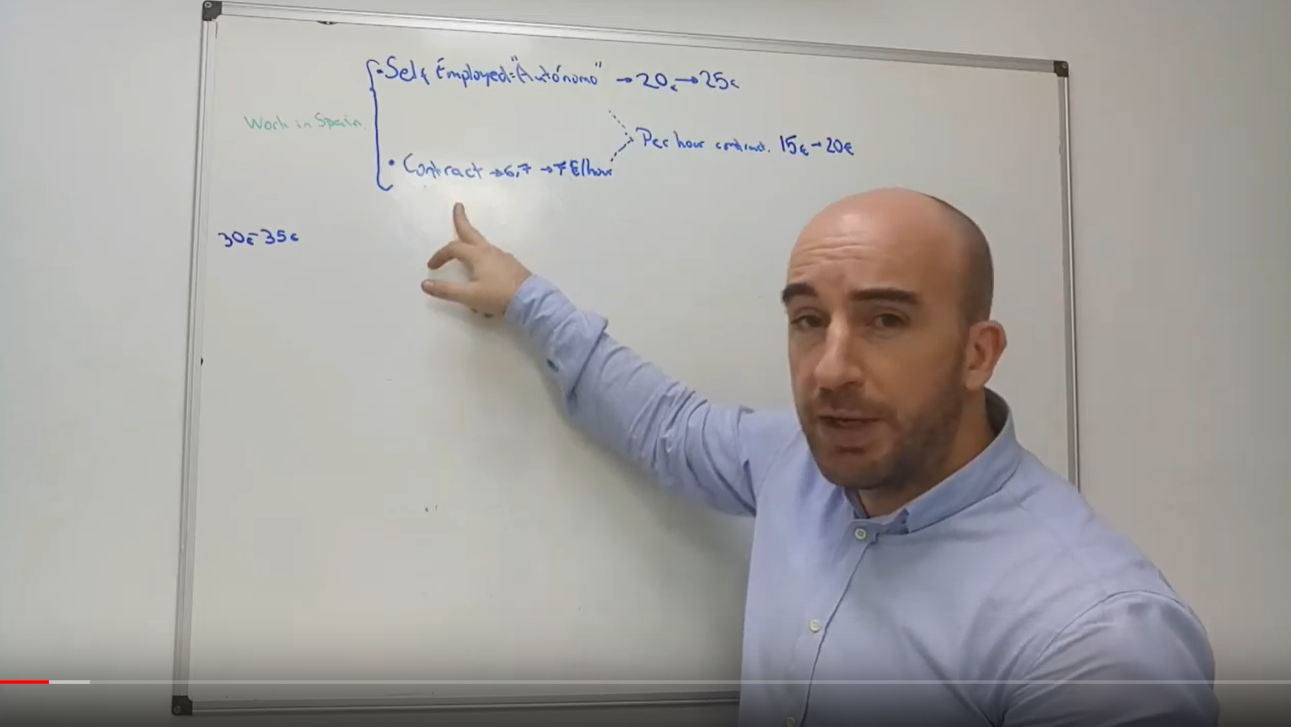I’m back!
NB: This article is not for teachers who want to teach in Spain for 1-2 years and then leave (I know this leaves out a huge amount of teachers). It is for those who want to make a living teaching languages in Spain.
NB2: I’m leaving out “autonomos”. They are another story, and in most cases very aware of rates, cost, taxes, profit margins etc.
Let’s start.
I was very interested in two questions which came up often (directly or implicitly) after the last video about TEFL teaching rates in Madrid (working on your own vs working for an academy). Questions asked by teachers who are genuinely worried about their future.
- Why can’t I get more than 20-25 hour (per week) contracts?
- Why isn’t teaching a stable profession where I can be working long-term for a company with decent enough salaries?
In my opinion one of the main reasons these two problems arise (this is a complex problem) is that teachers do not understand the contracts they can be offered. When they start working in Madrid, they are told they should ask for 15-20€ per hour when looking for a job. And they don’t understand what type of rates those are, and what were they created for. Or what other options they have.
If you work with rates designed for contracts with small hours, and work with the independence of a self-employed worker (but not taking the risk of becoming self employed), you can never obtain the benefits of a long-term contract with a company. Horses for courses.
Do these long-term contracts even exists? Or are they the holy grail in teaching. Well do they, and if academies want to create a group of stable professionals with which to work and grow, they should start to offer them.
Teachers need stability. Academies too.
But one must use the right tool for the job. And current rates are not it (and most ignore it).

